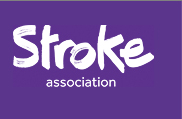 By Pallab Ghosh
Science correspondent, BBC News
By Pallab Ghosh
Science correspondent, BBC News
 Trial patients will get progressively higher doses of stem cells
Trial patients will get progressively higher doses of stem cells
Five
seriously disabled stroke patients have shown small signs of recovery
following the injection of stem cells into their brain.
Prof Keith Muir, of Glasgow University, who is treating them,
says he is "surprised" by the mild to moderate improvements in the five
patients.
He stresses it is too soon to tell whether the effect is due to the treatment they are receiving.
The results will be presented at the European Stroke Conference in London.
Complete paralysis
BBC News has had the first exclusive interview with one of the patients involved.
They are taking part in a small
clinical trial
involving nine patients in their 60s, 70s and 80s at Glasgow's Southern
General Hospital to assess the safety of the procedure which involves
injecting stem cells into the damaged brain part.
It is one of the first trials in the world to test the use of stem cells in patients.
Results to be presented on Tuesday show that there have been
no adverse effects on the patients so far and there have been
improvements to more than half participating in the trial.
However, at this stage it is not possible to say whether the
improvements are due to the close medical attention the patients are
receiving. It is well documented that the feeling of wellbeing resulting
from such attention, known as the placebo effect, can have a positive
effect on people's health.
But it is thought that stroke
patients do not recover after the first six months of their stroke. All
the patients involved in the trial had their strokes between six months
and five years before they received the treatment.
The recovery of any one of them - let alone five - was not expected, according to Prof Muir, who is in charge of the trial.
"It seems odd that it should all just be chance and a placebo
effect," he told BBC News. "We are seeing things that are interesting
and somewhat surprising.
"We've seen people who now have the ability to move their
fingers where they have had several years of complete paralysis," Prof
Muir said.
"We have seen some people that have been able to walk around
their house whereas previously they had been dependent on assistance and
we have had improvements that have enabled people to recognise what is
happening around them."
'Temporary change'
These improvements have made it easier for the patients to do
day-to-day tasks such as dressing themselves, walking and being more
independent.
"My expectation had been that we would see very little change
and if we did see change it would be a relatively short-lived temporary
change. (But) we have seen changes that have been maintained over
time," Prof Muir said.
Among the patients to have shown improvements is 80-year-old Frank Marsh, who had a stroke five years ago.
Frank and Claire Marsh on the "terrific small improvement" he has made
Prior to his attack Mr Marsh, a former teacher, was fit and
active: a member of the Glasgow Phoenix Choir and a keen piano player.
The stroke left him with poor strength and co-ordination in his left
hand and poor balance.
He needs a walking stick to help him move around the house and he can no longer play the piano.
After the injection of stem cells into the damaged area of
his brain, his balance and mobility improved as did his hand strength.
He can now also tie up his shoe laces.
Mr Marsh said he believed the operation had gradually led to improvements.
"I can now grip things that I couldn't grip before, like the hand rails at the swimming baths," he said.
Phase two trial
His wife, Clare, also a teacher, said that the small
improvements had made him more independent. "He had reached a plateau
and wasn't really improving (after his stroke). But following the
operation he is able to do things he couldn't do before, such as make
coffee, dressing and holding on to things."
Mr Marsh added that he hoped the
improvements would continue: "I'd like to get back to my piano. I'd
like to walk a bit steadier and further."
However, Mrs Marsh felt that there would be no further
progress for her husband, but hoped that others might benefit from the
clinical trial that he is participating in.
"The great potential is what it is going to do for the
future," she said. "I told Frank at the beginning that this may not help
you, but it might help your grandson."
Mrs Marsh is right in that even if it is proved that the
stem-cell treatment really works it will be a long time before any
treatment might be widely available.
The results so far pave the way for a so-called phase two
trial later this year which will be desirable to determine whether any
improvement is due to the treatment.
If the phase two trial does show that the stem-cell treatment
is the cause of the improvements, it could still take many years before
it becomes widely available. Larger phase three trials will be needed
to assess who the treatment is most suitable for and at what stage it
might be most effective.
Ethical approval
Commenting on the research, Dr Clare Walton of the Stroke
Association said: "The use of stem cells is a promising technique which
could help to reverse some of the disabling effects of stroke. We are
very excited about this trial; however, we are currently at the
beginning of a very long road and significant further development is
needed before stem cell therapy can be regarded as a possible
treatment."
The stem cells were created 10 years ago from one sample of
nerve tissue taken from a foetus. The company that produces the stem
cells, Reneuron, is able to manufacture as many stem cells as it needs
from that original sample.
It is because a foetal tissue sample was involved in the development of the treatment that it has its critics.
Among them is anti-abortion campaigner Lord Alton. "The
bottom line is surely that the true donor (the foetus) could not
possibly have given consent and that, of course, raises significant
ethical considerations," he said.
Reneuron says the trial - which it funded - has ethical
approval from the medicine's regulator. It added that one tissue sample
was used in development 10 years ago and that foetal material has not
been used since.
To read the whole story follow the link:
http://www.bbc.co.uk/news/health-22646103









 Happy Summertime my lovelies!
Happy Summertime my lovelies!







